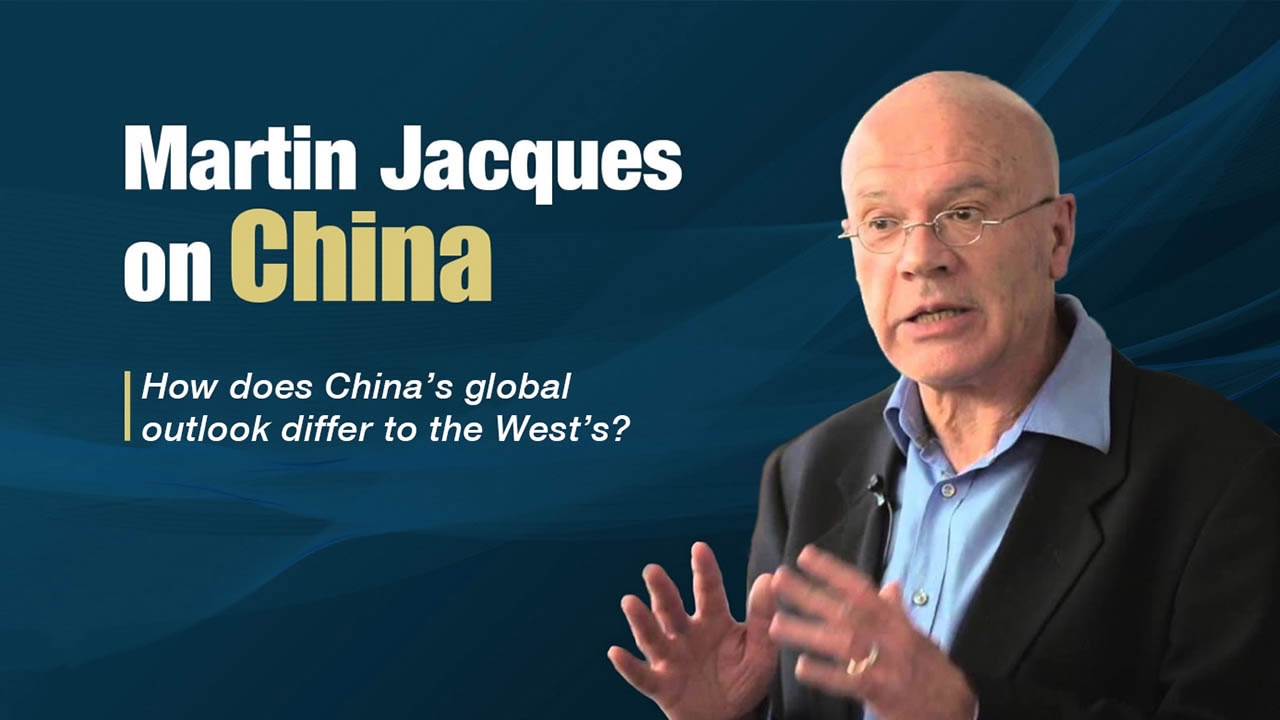
Opinions
14:45, 31-Dec-2017
Martin Jacques on China: How does China’s global outlook differ to the West’s?
CGTN

Editor’s note:
China has developed and articulated a foreign policy centered around achieving common global goals over the past five years. President Xi Jinping refers to the vision as “a community of shared future for mankind.” It is an outlook which stresses commonality and cooperation to find solutions to shared problems, and is encapsulated by the Belt and Road Initiative – a trade and infrastructure plan designed to deliver mutual benefits to all participants.
Martin Jacques on China explains China’s growing influence on the world stage, and considers why its global outlook is so different to that of Western countries.

VCG Photo
VCG Photo
It is certainly the case that the idea of a common future or a sense of shared destiny has become, in the last several years, a very powerful theme of Chinese foreign policy. The idea that a section of the world, or indeed the whole world, has shared values and shared objectives. And I think it does represent a shift in Chinese foreign policy. And I think the reason for this is essentially that, until very recently, China did not have a very global outlook. It was too weak for that situation.
Under Deng Xiaoping, China’s overwhelming preoccupation was to escape from a numbing poverty.
But even in the 21st century, China was still quite weak. And it’s only toward after the western financial crisis that China began to feel strong enough, that it could have a global policy, that it was no longer really passive, or a spectator, in terms of the global economy and global politics.
But now it could be more proactive, so it developed in a quite short space of time a sense of a new global outlook.
And how does China see it? China sees essentially a commonality across the world because with globalization, there has been a shrinking of the world, and therefore more and more problems are shared. They are shared problems, shared difficulties. And they have to have shared solutions.
So China’s starting point now, when it looks at international problems, the starting point is a global starting point, the notion of the world. That is very different from the situation of the west. The west has never really had a global outlook in that sense. The starting point of a western analysis is either in terms of a nation state, for example the United States, or a regional notion, the west. But it does not ever have really a global notion which is why, for example, you could not conceive of the United States having a project like the Belt and Road Initiative.
(British journalist and academic Martin Jacques, the author of global bestseller When China Rules The World, is one of the leading Western commentators on Chinese affairs. He is a senior fellow at Cambridge University and an invited senior fellow at the China Institute, Fudan University. Martin Jacques on China is an eight-part video series discussing issues affecting China’s future.)

SITEMAP
Copyright © 2018 CGTN. Beijing ICP prepared NO.16065310-3
Copyright © 2018 CGTN. Beijing ICP prepared NO.16065310-3